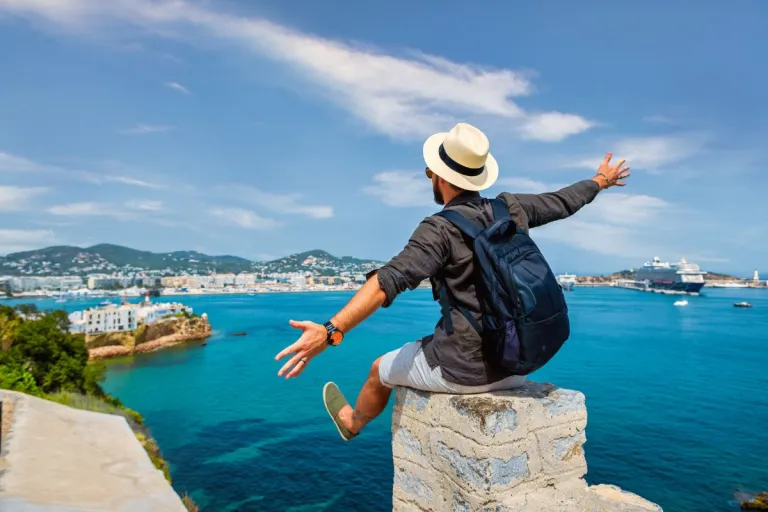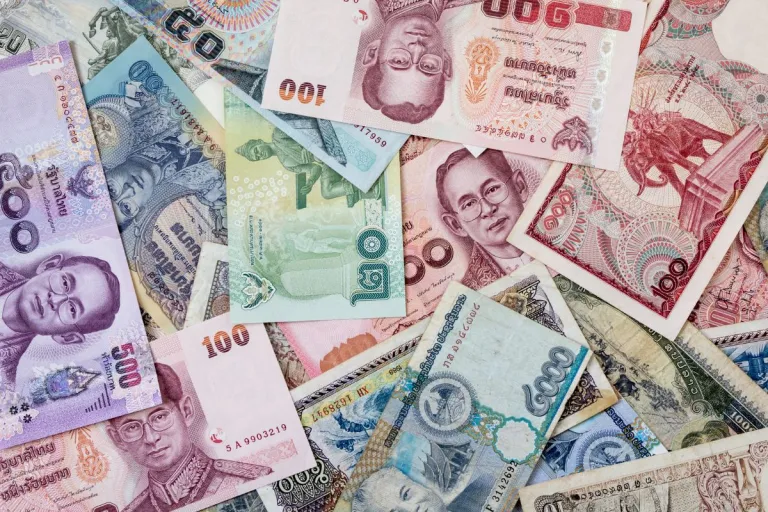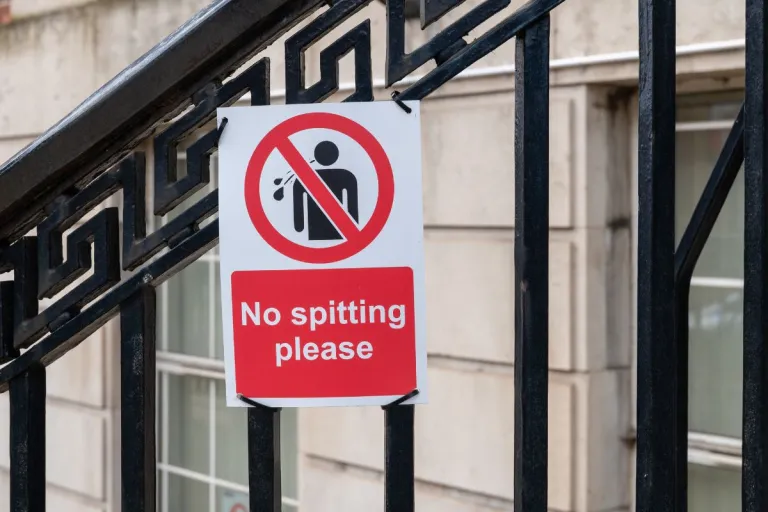Look for these logos before you EAT!
7 Bizarre Travel Rules You Should Know Before Visiting These Places

Every destination has its unique customs and quirks, and understanding them is key to travelling responsibly. Imagine strolling through the charming streets of Venice while chewing gum or attempting to enter an ancient Greek temple in high heels. Suddenly, you’re fined or denied entry. It sounds like something out of a travel mishap story, but unusual travel rules like these exist worldwide, ready to surprise unwitting tourists.
These aren’t just your standard “no littering” guidelines. They’re quirky, unconventional rules that can easily catch travellers off guard. To ensure a smooth journey, here’s a tour of some of the world’s most peculiar travel regulations that every traveller should know to avoid unnecessary fines or embarrassing moments.
Also read: Top 10 Summer Vacation Spots for Muslim Travellers in 2024
1. No camouflage in the Caribbean
 Image credit: JackF via Getty Images
Image credit: JackF via Getty Images
In the Caribbean, wearing camouflage clothing is strictly prohibited in certain countries like St. Vincent and St. Lucia. This attire is reserved exclusively for the military, and wearing it outside the armed forces is considered uniform forgery—even for children. Tourists should stick to colourful beachwear to embrace the vibrant island culture. Not following this rule could result in fines or other penalties.
2. No heels in Greek ruins
 Image credit: Godisable Jacob via Canva Pro
Image credit: Godisable Jacob via Canva Pro
Tourists visiting historical landmarks in Greece, such as the Acropolis, must leave their high heels behind. This rule is designed to protect ancient sites from damage caused by sharp heels. Travellers are encouraged to wear comfortable footwear like sandals or sneakers, making their exploration more enjoyable while preserving the integrity of the monuments.
3. Mind the currency in Thailand
 Image credit: Jpkirakun via Canva Pro
Image credit: Jpkirakun via Canva Pro
In Thailand, stepping on currency is considered highly disrespectful and is treated as a criminal offence. Thai banknotes and coins feature the King’s portrait, and any act seen as defacing or dishonouring them is taken seriously. Travellers should be cautious in crowded areas to avoid accidental violations of this rule.
4. Buddha tattoos are forbidden in Sri Lanka
 Image credit: RNMitra via Canva Pro
Image credit: RNMitra via Canva Pro
In Sri Lanka, displaying Buddha tattoos can lead to arrest or deportation. The country, predominantly Buddhist, holds strict regulations regarding the portrayal of Gautama Buddha. Travellers are also discouraged from taking selfies with Buddha statues or posing disrespectfully near religious sites.
5. Quiet nights in Switzerland
 Image credit: montipora via Canva Pro
Image credit: montipora via Canva Pro
Also read: Halal Food in Zurich, Switzerland
In Switzerland, maintaining quiet between 10 pm and 7 am is a common courtesy, even extending to flushing toilets in some residential areas. Although not a criminal offence, violating this unwritten rule can lead to complaints from neighbours. Travellers should embrace the Swiss culture of serenity and avoid making unnecessary noise during these hours.
6. Don’t feed the pigeons in Venice
 Image credit: Manfred Zajac via Canva Pro
Image credit: Manfred Zajac via Canva Pro
Feeding pigeons in Saint Mark’s Square, Venice, is strictly forbidden. The city has imposed fines of up to €700 to protect its historic landmarks from damage caused by bird droppings. Tourists are advised to admire the birds from afar while keeping public spaces clean and preserving Venice’s beauty.
7. No spitting in Barcelona
 Image credit: Martin D Brown via Canva Pro
Image credit: Martin D Brown via Canva Pro
Barcelona enforces a strict no-spitting rule in public spaces. Whether walking along La Rambla or relaxing on Barceloneta Beach, visitors should be mindful of this regulation to avoid hefty fines.
Always research local laws before travelling
Before setting off on an adventure, travellers should take time to research the local rules and customs of their destination. This small effort can prevent unexpected legal troubles or fines, ensuring a stress-free and enjoyable journey.
Whether it’s swapping high heels for sneakers in Greece or keeping a watchful eye on currency in Thailand, being informed allows travellers to navigate unfamiliar destinations with confidence. By respecting local customs and embracing cultural differences, every traveller can create memorable experiences while staying out of trouble.
Published at
About Author
Aimi Zulkiflee
Subscribe our Newsletter
Get our weekly tips and travel news!
Recommended Articles
10 Halal Logos in ASEAN That Every Muslim Traveller Needs to Know 10 Halal Restaurants in Bangkok to Satisfy Your Thai Cravings From Korean-style BBQ and Punjabi curries to award-winning shrimp Pad Thai, take your pick from these amazing Halal restaurants in Bangkok.
10 Most Beautiful Mosques in India Let India’s mosques dazzle you with their awe-inspiring domes, intricate carvings, and stories of empires long gone...
Top 10 Ramadan Special Menus to Try in India Discover 10 exceptional Ramadan menus across India that will make your meal experience amazing even while travelling!
10 Real-Life Anime Locations Every Muslim Otaku Fan Must Visit The fact that Japan look like anime in real life, mindblowing!
Latest Articles
Halal Honeymoon in Sarawak: 10 Romantic Muslim-Friendly Activities Romance, rainforests, and halal adventures await in Sarawak!
5 Muslim-Friendly Theme Parks in Johor Bahru (JB) for Singaporeans to Visit Consider that weekend family trip to JB locked in!
Halal Food Guide: 6 Muslim-Friendly Restaurants at Universal Studios Japan You can savour the halal butter beer here!
MySawasdee Train: A Scenic, Muslim-Friendly Journey From Penang to Hat Yai to Launch in Q3 2025 MySawasdee train is set to launch as regular service In Q3 of 2025!
Why Is The Floor of Masjid al-Haram Always Cool – Even in Scorching Heat? Did you know, Thassos marble is so white that it reflects sunlight easily!

